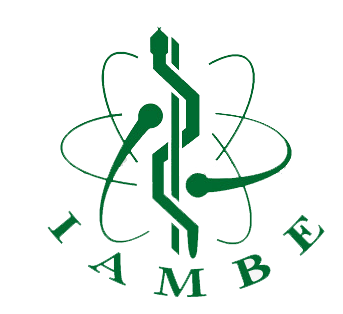Michael R. King
by seuh8j4 | Feb 21, 2024
LnRiLWZpZWxke21hcmdpbi1ib3R0b206MC43NmVtfS50Yi1maWVsZC0tbGVmdHt0ZXh0LWFsaWduOmxlZnR9LnRiLWZpZWxkLS1jZW50ZXJ7dGV4dC1hbGlnbjpjZW50ZXJ9LnRiLWZpZWxkLS1yaWdodHt0ZXh0LWFsaWduOnJpZ2h0fS50Yi1maWVsZF9fc2t5cGVfcHJldmlld3twYWRkaW5nOjEwcHggMjBweDtib3JkZXItcmFkaXVzOjNweDtjb2xvcjojZmZmO2JhY2tncm91bmQ6IzAwYWZlZTtkaXNwbGF5OmlubGluZS1ibG9ja311bC5nbGlkZV9fc2xpZGVze21hcmdpbjowfQ==
TW9udHNlcnJhdDo2MDAscmVndWxhciw1MDA=
LnRiLWZpZWxkW2RhdGEtdG9vbHNldC1ibG9ja3MtZmllbGQ9ImVjMWNjYjkwNWI1ZTBmMGM1Y2M3YjhlNzhhMjU5OWQxIl0geyBmb250LXNpemU6IDE0cHg7Zm9udC1mYW1pbHk6IE1vbnRzZXJyYXQ7Zm9udC13ZWlnaHQ6IHJlZ3VsYXI7IH0gIC50Yi1maWVsZFtkYXRhLXRvb2xzZXQtYmxvY2tzLWZpZWxkPSI2ZjczYjQzMWRlYjhlN2MzZDhmYTY3OTNiYWEyNzk0ZSJdIHsgZm9udC1zaXplOiAyMHB4O2ZvbnQtZmFtaWx5OiBNb250c2VycmF0O2ZvbnQtd2VpZ2h0OiA1MDA7IH0gIC50Yi1maWVsZFtkYXRhLXRvb2xzZXQtYmxvY2tzLWZpZWxkPSI1NzVjMDY5MGY2ZTFhYjlmYWMzMGM5MWJjMzZlYjZmYSJdIHsgZm9udC1zaXplOiAyMHB4O2ZvbnQtZmFtaWx5OiBNb250c2VycmF0O2ZvbnQtc3R5bGU6IGl0YWxpYztmb250LXdlaWdodDogcmVndWxhcjt0ZXh0LWFsaWduOiBsZWZ0OyB9ICAudGItZmllbGRbZGF0YS10b29sc2V0LWJsb2Nrcy1maWVsZD0iNjY1MjA4ZjdiZTc1MWU3MjkxYzNhNzI1YjY1YjdlYjciXSB7IGZvbnQtc2l6ZTogMzZweDtmb250LWZhbWlseTogTW9udHNlcnJhdDtmb250LXdlaWdodDogNjAwO2xpbmUtaGVpZ2h0OiA1MHB4OyB9ICAudGItaW1hZ2V7cG9zaXRpb246cmVsYXRpdmU7dHJhbnNpdGlvbjp0cmFuc2Zvcm0gMC4yNXMgZWFzZX0ud3AtYmxvY2staW1hZ2UgLnRiLWltYWdlLmFsaWduY2VudGVye21hcmdpbi1sZWZ0OmF1dG87bWFyZ2luLXJpZ2h0OmF1dG99LnRiLWltYWdlIGltZ3ttYXgtd2lkdGg6MTAwJTtoZWlnaHQ6YXV0bzt3aWR0aDphdXRvO3RyYW5zaXRpb246dHJhbnNmb3JtIDAuMjVzIGVhc2V9LnRiLWltYWdlIC50Yi1pbWFnZS1jYXB0aW9uLWZpdC10by1pbWFnZXtkaXNwbGF5OnRhYmxlfS50Yi1pbWFnZSAudGItaW1hZ2UtY2FwdGlvbi1maXQtdG8taW1hZ2UgLnRiLWltYWdlLWNhcHRpb257ZGlzcGxheTp0YWJsZS1jYXB0aW9uO2NhcHRpb24tc2lkZTpib3R0b219IC50Yi1pbWFnZVtkYXRhLXRvb2xzZXQtYmxvY2tzLWltYWdlPSI2NTEyMjIyNGJiNGRkZjhiMTlhMWVhMDFkZGQwNzU2ZCJdIHsgbWF4LXdpZHRoOiAxMDAlOyB9IC50Yi1pbWFnZVtkYXRhLXRvb2xzZXQtYmxvY2tzLWltYWdlPSI2NTEyMjIyNGJiNGRkZjhiMTlhMWVhMDFkZGQwNzU2ZCJdIGltZyB7IHBhZGRpbmctYm90dG9tOiA1MHB4O2JvcmRlcjogMHB4IHNvbGlkIHJnYmEoIDAsIDAsIDAsIDEgKTsgfSBAbWVkaWEgb25seSBzY3JlZW4gYW5kIChtYXgtd2lkdGg6IDc4MXB4KSB7ICAgICAudGItaW1hZ2V7cG9zaXRpb246cmVsYXRpdmU7dHJhbnNpdGlvbjp0cmFuc2Zvcm0gMC4yNXMgZWFzZX0ud3AtYmxvY2staW1hZ2UgLnRiLWltYWdlLmFsaWduY2VudGVye21hcmdpbi1sZWZ0OmF1dG87bWFyZ2luLXJpZ2h0OmF1dG99LnRiLWltYWdlIGltZ3ttYXgtd2lkdGg6MTAwJTtoZWlnaHQ6YXV0bzt3aWR0aDphdXRvO3RyYW5zaXRpb246dHJhbnNmb3JtIDAuMjVzIGVhc2V9LnRiLWltYWdlIC50Yi1pbWFnZS1jYXB0aW9uLWZpdC10by1pbWFnZXtkaXNwbGF5OnRhYmxlfS50Yi1pbWFnZSAudGItaW1hZ2UtY2FwdGlvbi1maXQtdG8taW1hZ2UgLnRiLWltYWdlLWNhcHRpb257ZGlzcGxheTp0YWJsZS1jYXB0aW9uO2NhcHRpb24tc2lkZTpib3R0b219IH0gQG1lZGlhIG9ubHkgc2NyZWVuIGFuZCAobWF4LXdpZHRoOiA1OTlweCkgeyAgICAgLnRiLWltYWdle3Bvc2l0aW9uOnJlbGF0aXZlO3RyYW5zaXRpb246dHJhbnNmb3JtIDAuMjVzIGVhc2V9LndwLWJsb2NrLWltYWdlIC50Yi1pbWFnZS5hbGlnbmNlbnRlcnttYXJnaW4tbGVmdDphdXRvO21hcmdpbi1yaWdodDphdXRvfS50Yi1pbWFnZSBpbWd7bWF4LXdpZHRoOjEwMCU7aGVpZ2h0OmF1dG87d2lkdGg6YXV0bzt0cmFuc2l0aW9uOnRyYW5zZm9ybSAwLjI1cyBlYXNlfS50Yi1pbWFnZSAudGItaW1hZ2UtY2FwdGlvbi1maXQtdG8taW1hZ2V7ZGlzcGxheTp0YWJsZX0udGItaW1hZ2UgLnRiLWltYWdlLWNhcHRpb24tZml0LXRvLWltYWdlIC50Yi1pbWFnZS1jYXB0aW9ue2Rpc3BsYXk6dGFibGUtY2FwdGlvbjtjYXB0aW9uLXNpZGU6Ym90dG9tfSB9IA==
Michael R. King
Vanderbilt University, USA
2019
TW9udHNlcnJhdDo2MDAscmVndWxhciw1MDA=
Michael R. King is the J. Lawrence Wilson Professor and Department Chair of Biomedical Engineering at Vanderbilt University. Previously he was the Daljit S. and Elaine Sarkaria Professor at Cornell University. He completed a PhD in chemical engineering at the University of Notre Dame and postdoctoral training in bioengineering at the University of Pennsylvania. He has written textbooks on the subjects of statistical methods and microchannel flows, and has received several awards including the NSF CAREER Award, Outstanding Research Awards from the American Society of Mechanical Engineers and the American Society of Clinical Chemistry, and was a James D. Watson Investigator of New York State. King is a Fellow of the American Institute for Medical and Biological Engineering and the Biomedical Engineering Society, and serves as Vice President of the International Society of Bionic Engineering. He is the Editor-in-Chief of Cellular and Molecular Bioengineering, an official journal of the Biomedical Engineering Society, and serves as the Chair-Elect of the Biomedical Engineering Council of Chairs.
The King Lab employs tools and concepts from engineering to understand biomedically important processes that occur in the bloodstream, including cancer metastasis, inflammation, and thrombosis. They have shown that tumor cells in the circulation can mimic the physical mechanisms used by white blood cells to traffic through the body and adhere to the blood vessel wall, and have explored strategies to interrupt this metastasis process by targeting specific adhesion receptors. Microscale flow devices have been developed in the lab that recreate the complex microenvironment of the circulation where inflammation and cancer metastasis occur. They have invented new biomaterial surfaces based on natural halloysite nanotubes, that capture rare circulating tumor cells (CTCs) from blood while simultaneously repelling white blood cells. The selectin adhesion receptors important in leukocyte, stem cell, and CTC trafficking have unique biophysics that make them ideal for targeted drug delivery. The King Lab has pioneered the use of selectin proteins to deliver apoptosis death signals to tumor cells in flowing blood, and to deliver therapeutic cargo (e.g., siRNA, chemotherapeutics) encapsulated in nanoscale liposomes.

